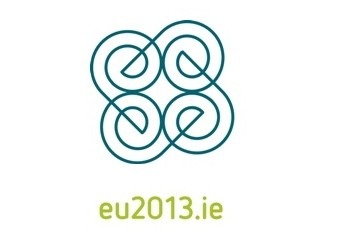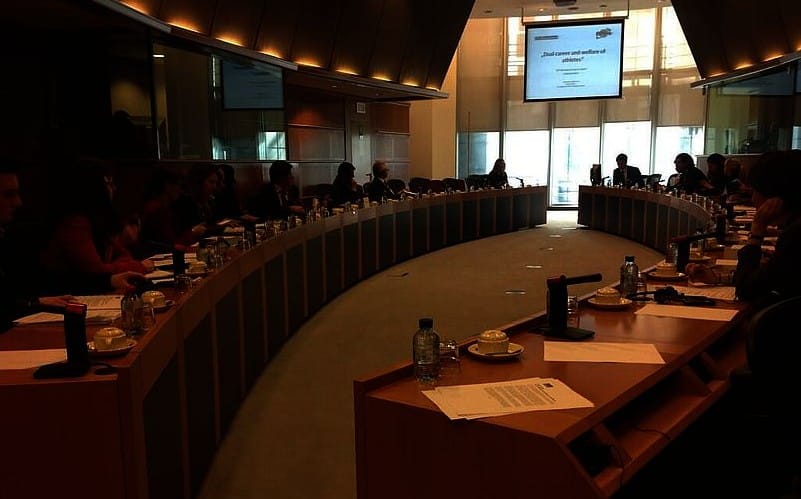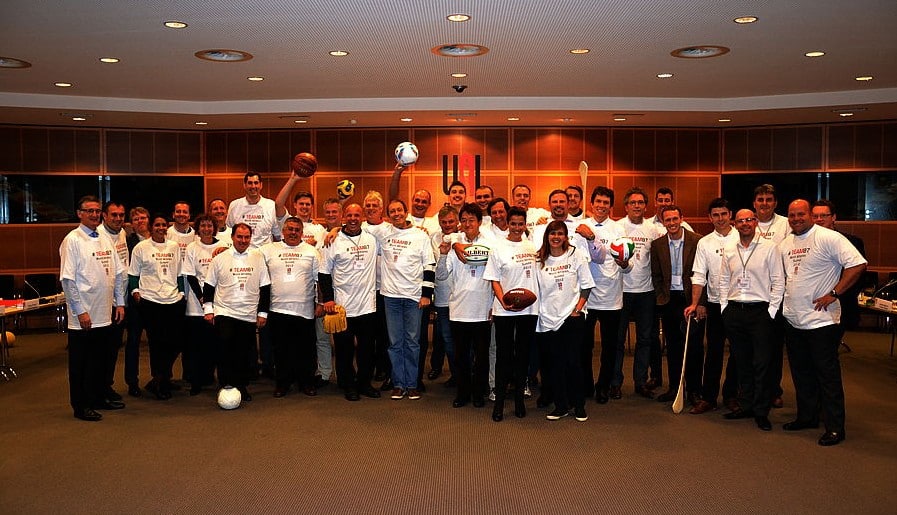
UNI Europa/EU Athletes Working Conditions Survey published
UNI Europa Sport Pro and EU Athletes in the framework of their European Commission funded project “FOCUS ON ATHLETES” undertook a survey into the working conditions of professional athletes in European Basketball, Rugby, Ice Hockey and Handball.
– Executive Summary
The study examined the working conditions of professional sports players of ice hockey, rugby, handball and basketball. The findings raise a number of interesting issues about life in professional sports, the way players are treated, their attitudes to their career after sport, their health, their financial provisions and how these sports are organised in various European member states. What follows below is a snapshot of the key issues raised by professional players about their working life, which ought to serve as an action plan for the representatives of players, their clubs and the leagues in which they work.
– Players without a contract
Although the majority of players in the study have a formal contract with their club, there are still many who do not, raising issues such as security of employment and the application of employment legislation to protect their rights at work
– Late payment of wages
In a number of countries, regardless of the type of sport, many players complained about receiving their wages late each month. In too many cases players state that their wages are sometimes or always paid late and this is something that ought to be addressed.
– Lack of pension provisions
Many professional players have no pension, which raises doubts about individual players’ capacity to make adequate provisions for retirement. UNI Europa Sport, employers and player associations all must work to raise the awareness among young players of the importance of having a pension.
– Deficit of support from employers for education
While the evidence shows that sports players undertake some form of study while working as a professional, it is clear that players are not aware of educational opportunities for life beyond their career in sport. Furthermore, where players wish to participate in non-sport related training, too often their employer is unwilling to support them to prepare for a new career after they retire from sport. This lack of support by employers could threaten the sustainability of professional sports as younger players become reluctant to pursue this occupation due to the difficulties posed by beginning a new career once they retire from sport.
– Sport poses a high risk to health
The findings for all four sports in this study show that 63.2 per cent of sports players within the scope of the research feel that their professional poses a risk to their health. The responses from players across all four sports are littered with injuries – from broken bones, torn ligaments, concussion, injuries to the back and shoulders, damage to teeth to stress, general fatigue and sleeping problems.
– Low incidence of insurance against career ending injuries
Given the high number of days sports players are absent from work due to injury, it is surprising that less than a third of all players in the survey have a current insurance policy to protect them against a career ending injury (31.4%), suggesting there is a significant amount of work to carry out by the stakeholders to ensure this issue is addressed.
– Satisfaction with therapeutic support
Injured players rely upon the therapeutic support provided by their team’s doctors and therapists, however there are significant variations in the quality of support provided to injured players by their employer and these issue needs addressing.
– Low Quality of refereeing
One consistent complaint raised by players across all four sports was the apparent low quality of refereeing. The report contains suggestions for areas of improvement from players.
– Overwhelming support for sector wide collective agreement
Without doubt, the extent of support for the creation of an industry-wide collective agreement to regulate minimum standards for working time, wages, pension provisions and minimum insurance provisions was overwhelming among players from all countries and sports.
– High incidence of harassment and discrimination
The degree to which players have individually been subjected to acts of intimidation, bullying, harassment and discrimination were highlighted in the survey. The findings show that in all sports and across all countries professional players have been exposed to various unwanted physical acts, threats and bullying and discrimination on the grounds of ethnicity and age.
– Doping away from the workplace is considered an invasion of privacy
Players who have experienced being tested outside of their workplace are far more likely to consider this to constitute an invasion of their privacy than those who have not. The issue of privacy and testing therefore needs the attention of the European Commission and the social partners, to provide a methodology that ensures that players who do artificially enhance their performance in this way are caught, yet the process for doing so must rest within the boundaries of what is socially acceptable and must be designed with the issue of privacy at the centre.
– Increase in evening work
Although the research findings for the prevalence of Sunday work show similar trends to those in the previous study, there does appear to be an increase in the number of handball players working in the evenings in both Spain and France.
– Insufficient notice for changes to work schedule
Notice of changes to a player’s work schedule are often inadequate and the vast majority of players in all countries and sports examined regularly experience changes to their work schedule, many through notice measured in hours not days.
– Good work / life balance
The majority of players are satisfied that their working life fits in well with their wider commitments outside the workplace. Although, many players would prefer less matches in the season and more time off around the Christmas / New Year period.
– Low awareness of disciplinary rules
A significant number of players are not familiar with their league or club’s disciplinary rules, and those that are not usually haven’t been sent a copy of the relevant documents by their employer.
– Fines for misconduct
Players are often fined by their club as a disciplinary measure. While the value of the fine varies, many players often agree the level of their fine with their club. However, there do not appear to be any consistencies of this type of approach across specific sports or countries.
It is clear from the research that the perception of professional sports players among the general public is far from the reality of the majority of professional players. The research raises serious weaknesses in the regulation of employment in the sector and the negative effects this has on the working lives of professional players. While these issues are not insurmountable and, in some cases, relatively simple actions would deliver significant improvements to the lives of players, improvements of the kind required will require a multilateral approach, involving the European Commission and its institutions, player associations, employers and the bodies regulating the leagues of each sport across all member states. In addition, the absence of a social dialogue infrastructure within the sector presents a significant challenge to the stakeholders and therefore the role and influence of the European institutions will need to be maximised in order to create an awareness of the problems identified by the research, to bring employers into discussions with player associations and to create a framework for jointly constructed solutions. Thus, improving the working lives of professional sports players will only be possible with the commitment and support of the European Commission in the coming months. The necessary changes are feasible, but they require the commitment and full participation of the stakeholders and a genuine will on behalf of the European Commission.



